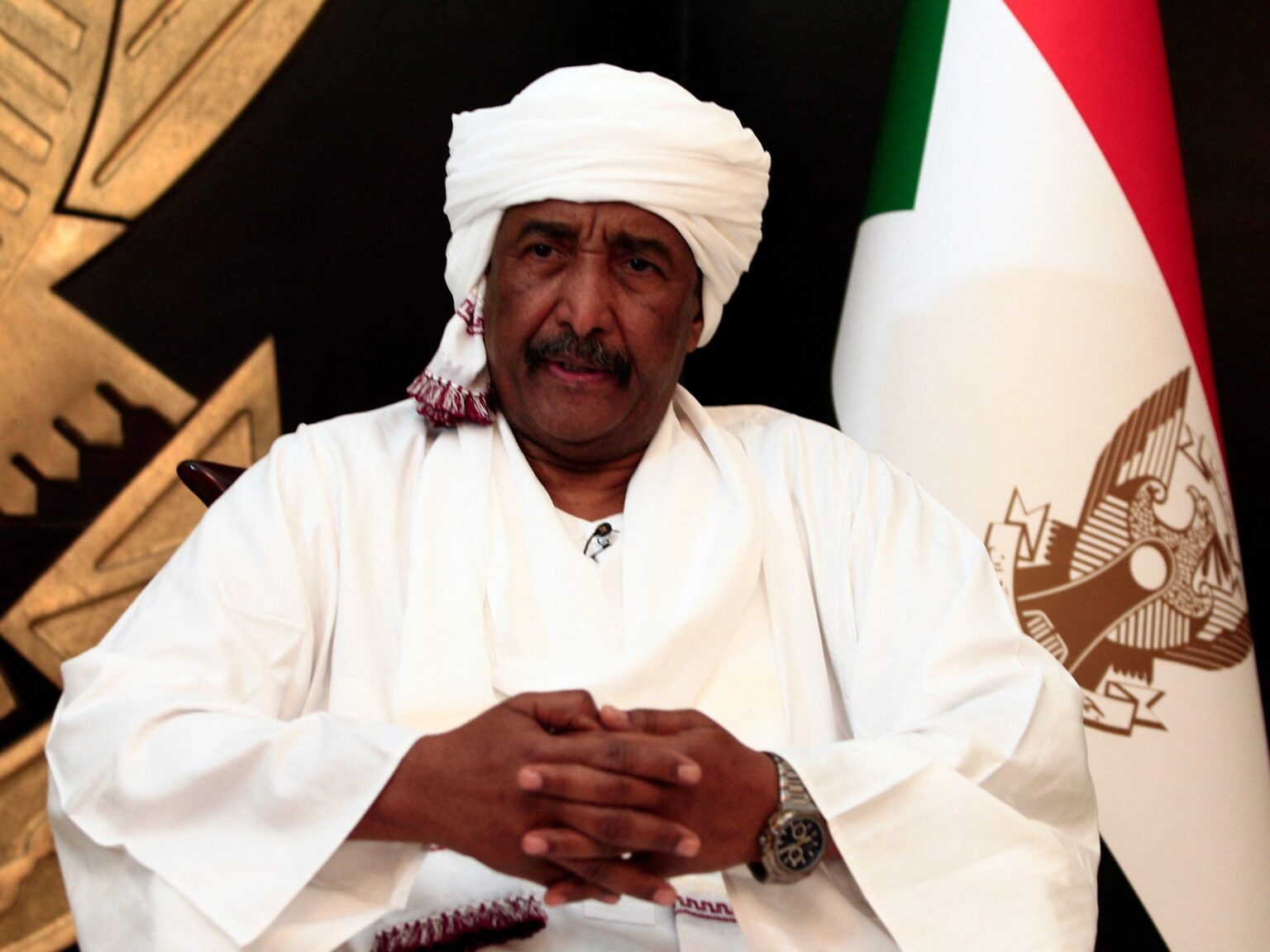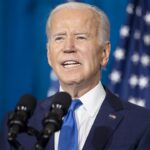Global Courant 2023-05-09 01:59:45
Sudan’s military chief, General Abdel Fattah al-Burhan, has said talks taking place in Saudi Arabia with the paramilitary Rapid Support Forces (RSF) are pointless without a ceasefire.
Al-Burhan’s comments on Monday come as warring factions hold talks in Jeddah in a bid to end the bloodshed that has killed hundreds and sparked a mass exodus.
US-backed talks began on Saturday between the military and the rival paramilitary RSF. So far, no progress has been reported in the talks, which have focused on the possibility of introducing a lasting ceasefire.
“We can discuss a settlement after we reach a permanent ceasefire in Khartoum,” al-Burhan said in a live phone interview with AlQahera News, warning that the war could spread to the rest of Sudan if a division would take place in the capital Khartoum.
“The situation is stable in all states except Khartoum,” al-Burhan told Egyptian local media.
To avoid being targeted by military forces, he added that members of the “brutal and oppressive” RSF “are taking shelter in civilian homes and service centers”.
A Saudi diplomat, speaking on condition of anonymity, told AFP news agency the talks have made “no major progress”.
“A permanent ceasefire is not on the table…both sides believe they are capable of winning the battle,” the diplomat added.
The fighters have previously said they would only attempt to address a ceasefire and humanitarian issues such as safe passage. Since the outbreak of the conflict on April 15, numerous ceasefires have been violated.
Earlier on Monday, al-Burhan said the army was looking for a peaceful solution but that discussions on a lasting settlement could only emerge “after we reach a permanent ceasefire in Khartoum”, where some of the fighting takes place.
“We believe that the peaceful solution is the ideal route to face this crisis,” he said.
But the sound of airstrikes and skirmishes reverberated through Khartoum again on Monday, witnesses said, and neither side has publicly indicated they are open to concessions.
Al Jazeera’s Hiba Morgan, reporting from Khartoum, said there has been heavy fighting between the RSF and the Sudanese army.
“There were heavy airstrikes launched by Sudanese army fighter jets… in the vicinity of the presidential palace and in the central part of Khartoum,” Morgan said.
“During the day, we could see smoke rising from that area and from the East Nile, where residents said airstrikes were also being carried out by Sudanese army fighter jets.”
In the North city of Khartoum, there were also reports of artillery shelling, she said. Residents who were there say it is likely the “surface-to-air missiles fired by the RSF at the Sudanese army’s fighter jets”.
Meanwhile, doctors say the situation in hospitals around Khartoum is very dire, according to Morgan, who added that they are running out of medicines, understaffed and in urgent need of help.
Mahjoub Salah, a 28-year-old doctor, witnessed fierce fighting and a neighbor being shot in the abdomen in his central Khartoum district of Al Amarat last month before renting a flat for his family in the south of the capital.
“We are still waiting for our passports to be issued, but we don’t know how long this will take,” Salah said. “Then our plan is to travel from Port Sudan to Saudi Arabia.”
Absence of key stakeholders
The US-Saudi initiative is the first serious effort to end the fighting that has turned parts of Khartoum into war zones, hampered an internationally backed plan to usher in civilian rule after years of unrest, and created a humanitarian crisis have caused.
The Saudi foreign ministry said pre-negotiation talks were “with the expectation of reaching an effective ceasefire in the short term to facilitate humanitarian aid”.
The US State Department said it believed the parties had also discussed protecting civilians. Talks about a more permanent settlement seem a long way off.
“We are not in favor of negotiations with (RSF chief) General Hemedti at the moment,” Dafallah Alhaj, an envoy for army chief al-Burhan, said in South Sudan on Monday.
Analysts have advised caution on the outcome, however, given the presence of hardliners in the delegations and recent RSF territorial gains that may deter the powerful militia from making concessions now.
“The main domestic and international stakeholders are not there like Egypt and the UAE, who are so far the only ones who have proven that they can guarantee a ceasefire,” said Kholood Khair, director of Confluence Advisory, a Sudanese think tank .
“The absence of civilians repeats the failures of previous political negotiations,” she said, adding that African states that support civilian rule in Sudan also did not attend.
Thousands of people are trying to leave Port Sudan on boats to Saudi Arabia, paying for expensive commercial flights through Sudan’s only functioning airport, or using evacuation flights.
Since the outbreak of fighting, the UN refugee agency has recorded more than 30,000 people entering South Sudan, more than 90 percent of whom are South Sudanese. The actual number is likely much higher, it says.
Aid groups fear the influx will exacerbate an already serious humanitarian crisis in South Sudan, which gained independence from Khartoum in 2011 after decades of civil war.








